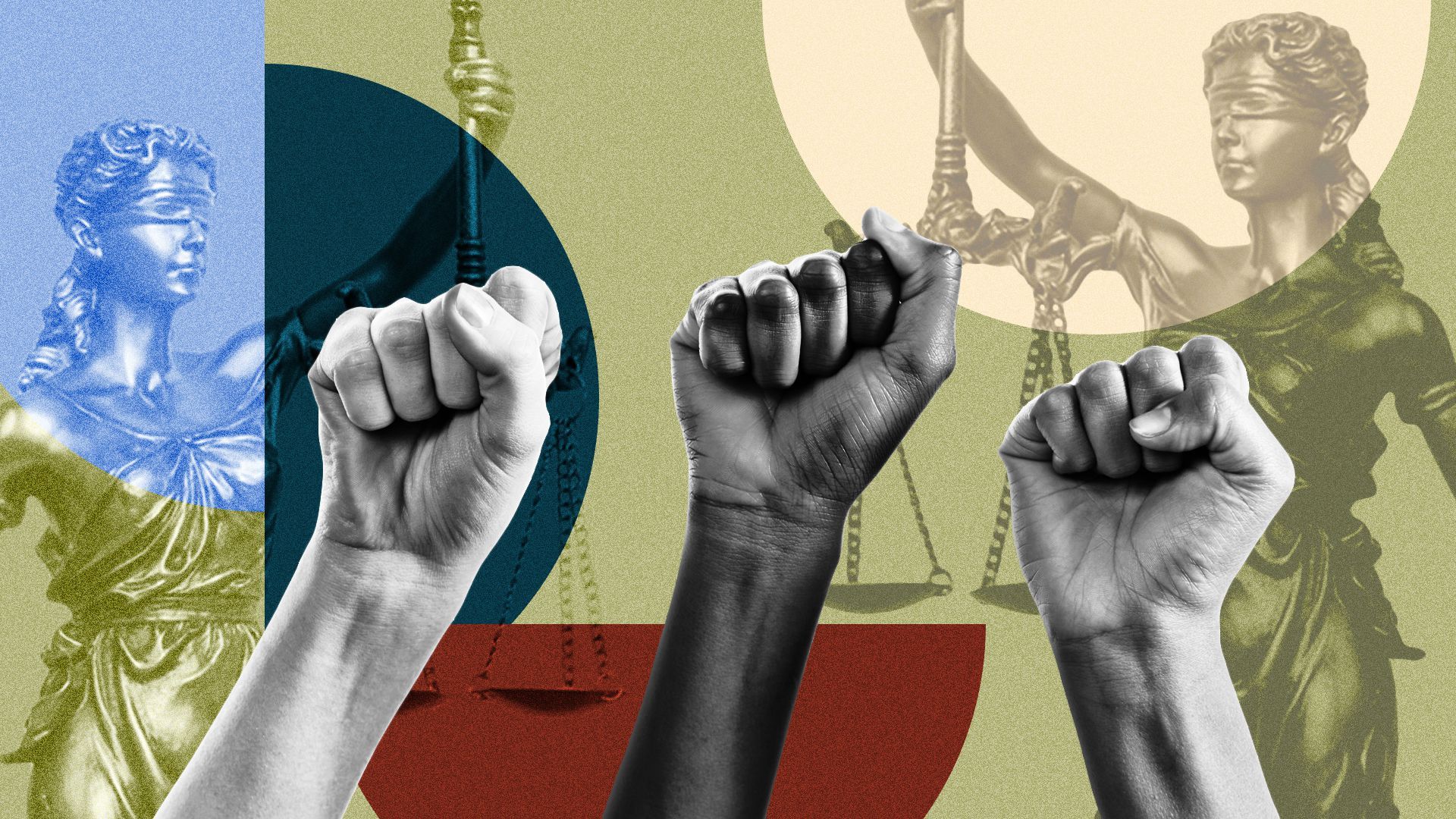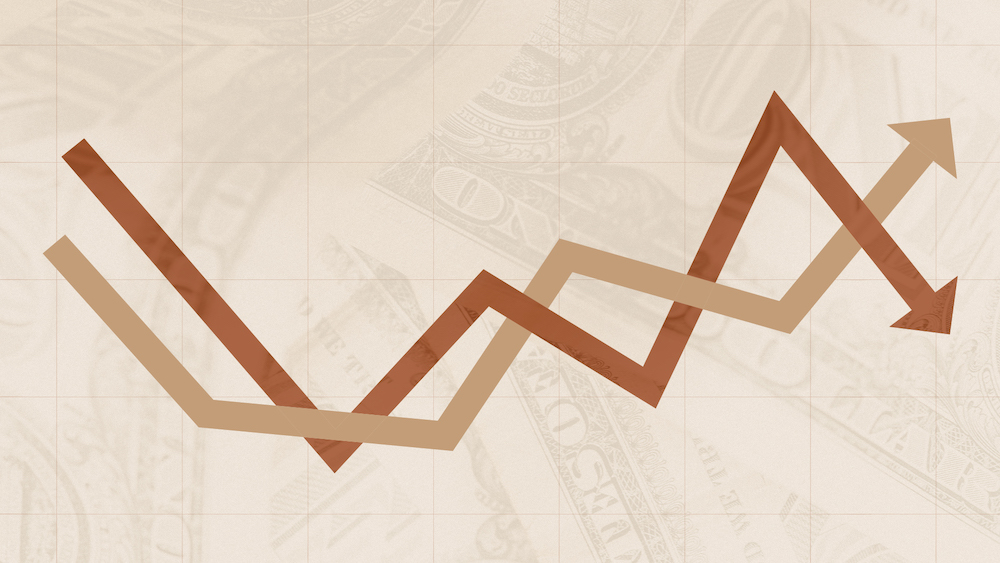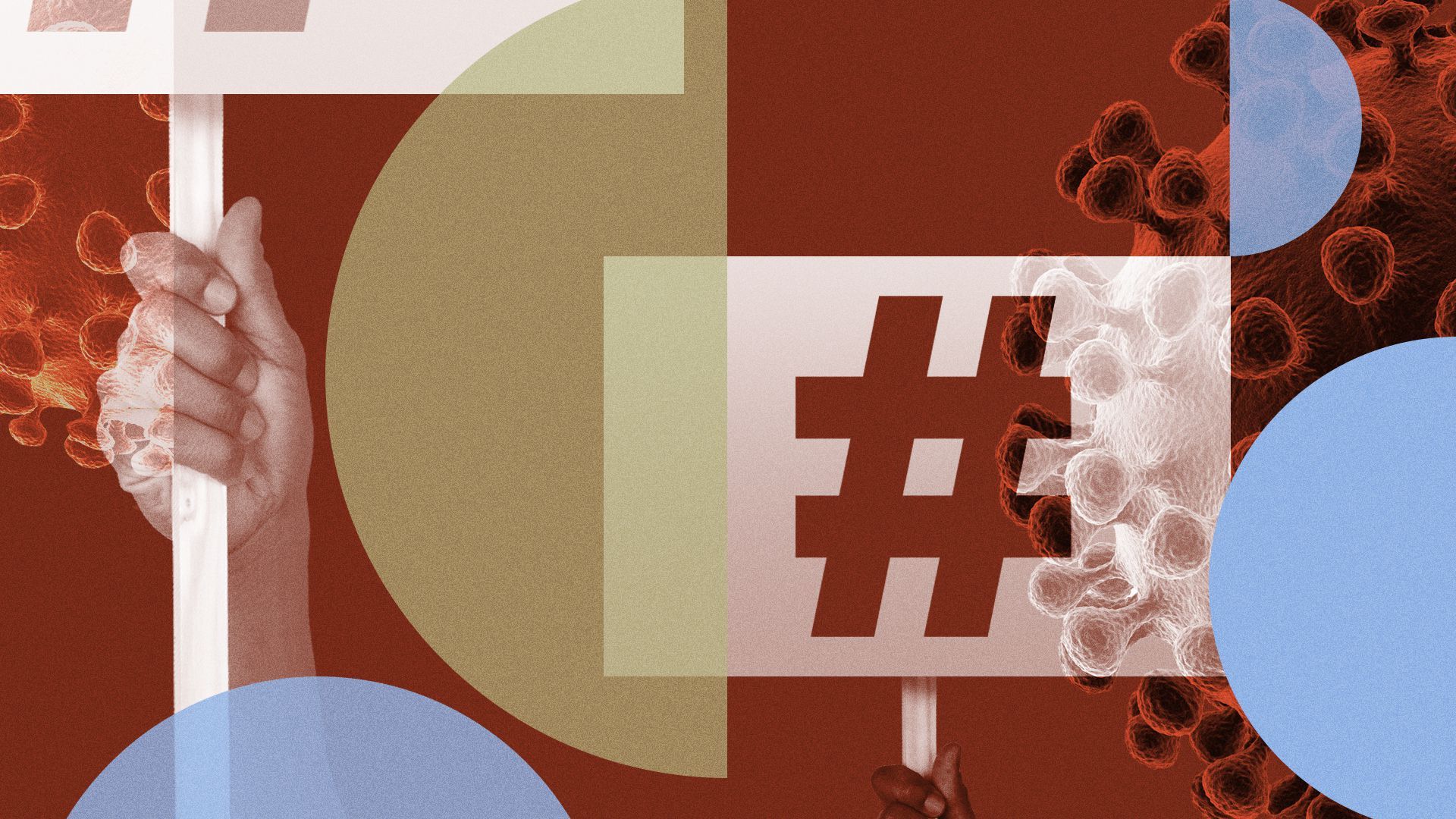| | | | | | | Presented By Blackstone | | | | Axios Markets | | By Felix Salmon · Oct 08, 2022 | | Five years ago, Jodi Kantor and Megan Twohey published a blockbuster investigation into Harvey Weinstein that set off shock waves across multiple industries. - We're devoting this week's edition of Markets Weekend — 1,462 words, a 5.5-minute read — to a simple question: What has changed since then, for American women?
| | | | | | 1 big thing: How women are faring, 5 years later |  | | | Illustration: Maura Losch/Axios | | | | In the five years since the publication of two gut-wrenching exposés involving women who said they were abused by film mogul Harvey Weinstein while trying to enter the industry, there's been a massive rise in social awareness of the pervasiveness of sexual harassment, Axios' Kia Kokalitcheva writes. Why it matters: Despite this, there's been little systemic change. The big picture: Media reports about women claiming abuse by Weinstein led to further coverage of the issue across a variety of industries and workplaces. - The spread of the #MeToo hashtag — created in 2006 by activist Tarana Burke — made sexual harassment's pervasiveness undeniable.
- It also highlighted the different ways in which women of color, the LGBTQ+ population, and other underrepresented groups experience harassment and discrimination.
"There was a time when I had to literally beg people to get this issue on the agenda," Burke says. - Then, once the #MeToo movement gained steam, a slew of advocacy groups were created, and companies big and small pledged they wouldn't tolerate the behavior any longer.
What changed: #MeToo was responsible for some overdue legislation. In total, 22 states and the District of Columbia have passed more than 70 workplace anti-harassment bills, per the National Women's Law Center. - California enacted a broad range of new laws, which expand liability for sexual harassment to include things like entrepreneurs interacting with investors. New laws enable workers to speak about sexual harassment and discrimination even if they've signed nondisclosure agreements.
- Other states, including New York, New Jersey and Illinois, have passed similar laws banning the silencing of sexual harassment victims. A federal version, the Speak Out Act, is making its way through Congress.
- The federal government passed a bill in February banning companies from forcing sexual harassment and discrimination claims into arbitration.
What hasn't changed: Progress in industries like tech and media has often proved short-lived, with many reverting to their old ways. - A number of tech investors who were ousted for harassment have since moved on to new jobs. And while the proportion of senior-level investment professionals who are women has grown over the years, it was still only 16% as of a 2020 venture capital survey.
- Even Uber, which voluntarily released victims of sexual harassment and assault from their NDAs in 2018, has reportedly been lobbying behind the scenes against the Speak Out Act.
- While a record number of women have been elected to Congress (though nowhere close to parity), they also face an outsized amount of threats, abuse, and online disinformation that's already discouraging some from running for office.
The bottom line: The American patriarchy is still entrenched, despite some progress since #MeToo's big moment five years ago. - Other forces — most notably the coronavirus pandemic and the U.S. Supreme Court's Dobbs v. Jackson Women's Health Organization decision in June — have had a bigger impact on women's overall work experiences, both good and bad.
|     | | | | | | 2. Catch up quick: Where it stands |  Data: U.S. Census, FRED, Women Business Collaborative, Bricker, et. al, A Wealth of Information, Chart: Tory Lysik and Erin Davis/Axios Visuals |     | | | | | | 3. The Dobbs effect |  | | | Illustration: Sarah Grillo/Axios | | | | #MeToo may have advanced women's progress, Axios' Emily Peck and Oriana Gonzalez write, but the Supreme Court's decision to overturn the constitutional right to an abortion is expected to roll back progress in other ways. Why it matters: Lack of access to abortion care has major socioeconomic consequences for women, previous research shows, lowering their earnings, career prospects, educational advancement and even pushing them into poverty. - "Having a child often takes women out of the work force," says Emily Johnston, senior research associate at the Urban Institute. It's often difficult to recover from that economic hit, leading to a lifetime of lower earnings.
- That could also exacerbate the wage gap, she adds.
What's happening: It's still early days when it comes to understanding the economic consequences of Dobbs. While some are traveling further to access abortion care, others are expected to give birth. - It's likely that between 50,000 and 80,000 women who would've otherwise terminated their pregnancy this year will instead give birth, says Caitlin Knowles Myers, an economist at Middlebury College known for her work on abortion.
- These are mostly lower-income women, who lack the resources to travel to access care — and for whom the financial fallout will likely be high.
- "The very conditions that made them unable to travel also make them extremely vulnerable to the shocks that will follow from an unintended birth," Myers says.
Zoom out: The states with the most restrictive abortion laws typically already have worse economic conditions for women and families, notes a new report from the Democratic-led Joint Economic Committee. They also lack supportive policies such as paid family leave. The other side: Abortion opponents argue that the moral consequences of the procedure outweigh any harms to women and children's economic status or health. |     | | | | | | A message from Blackstone | | Blackstone's approach in a volatile market | | |  | | | | Amid concerns about inflation and the economy, global head of private equity Joe Baratta discusses the importance of sector selection and business quality. See how Blackstone has positioned its investment portfolio for today's environment. | | | | | | 4. How the pandemic changed everything |  | | | Illustration: Shoshana Gordon/Axios | | | | Women's representation in the workforce grew — from entry level to C-suite — between 2015 and 2020, per McKinsey data. Then came COVID, Axios' George Moriarty writes. What happened: As workers began to return to the workforce after the job losses of March and April 2020, the recovery in women's labor force participation lagged that of men's up until the beginning of this year —though women have more recently caught up. - Low-wage customer service and retail workers bore the brunt. While frontline workers saw fewer job losses, they still had to balance risks to family.
- As Axios' Emily Peck reported in March, college-educated women who could transition to remote locations fared better.
- More women joined the ranks of the self-employed, with the share of women who report being self-employed climbing 0.7 percentage points to 8.2%, slightly more than twice the increase men reported.
Between the lines: The pandemic has in many ways had a bigger impact on women's representation in the workplace than anything else in the last few years. - For some working mothers, working from home brought the flexibility that they have long wanted, giving them more agency over their schedules and juggling various obligations.
- At the same time, the pandemic increased many women's demands in the household, leading them to quit their jobs to care for children or other family members. Mothers, in particular, still hadn't returned fully to the workforce as of July.
💭 Our thought bubble, from Axios' Sara Fischer: The pandemic also helped solidify change in terms of sexual harassment because it reduced in-person interactions, even if it didn't increase overall labor force participation. |     | | |  | | | | If you like this newsletter, your friends may, too! Refer your friends and get free Axios swag when they sign up. | | | | | | | | 5. Silicon Valley's underperformance |  Data: PitchBook; Chart: Axios Visuals Female entrepreneurs still receive only a small fraction of the money handed out by venture capitalists, George writes. - So far this year, women-led companies have seen their percentage of the VC pie shrink to just 17.1% of total deal value.
|     | | | | | | 6. When men sleep with their subordinates |  | | | Illustration: Aïda Amer/Axios | | | | Plenty of people still date at work, and even find spouses there, but they're now doing so within more highly enforced boundaries, Axios' Dan Primack writes. Why it matters: #MeToo has led to increased awareness of power dynamics within workplaces, and a more accepted understanding of the difference between office romance and sexual harassment. The big picture: The prevalence of office romances dipped in the immediate aftermath of #MeToo, per a CareerBuilder survey, while many companies reviewed and reworked anti-fraternization policies involving subordinates. Driving the news: Boston Celtics head coach Ime Udoka was recently suspended for one year, after what was reported to be a "consensual relationship with a female staff member." Flashback: Udoka's punishment is relatively light, by the standards of corporate America. - McDonald's CEO Steve Easterbrook was fired for a consensual relationship with a subordinate in 2019.
- Intel CEO Brian Krzanich left the company in 2018 after a consensual affair with a staffer was discovered.
- Lockheed Martin fired its then-to-be CEO Christopher Kubasik in 2012 for his inappropriate relationship with a subordinate, seven years after Boeing CEO Harry Stonecipher lost his job for having an affair.
- CNN president Jeff Zucker was forced out in February for having a consensual relationship with a subordinate.
|     | | | | | | 7. The New Hollywood |  | | | Illustration: Annelise Capossela/Axios | | | | Few industries were more roiled by #MeToo than Harvey Weinstein's own business of media and entertainment. Where it stands: A short list of the biggest names caught up in scandal includes not only Harvey Weinstein and R. Kelly — both now in prison — but also Bill Cosby, Roger Ailes, Bill O'Reilly, Charlie Rose, James Toback, Kevin Spacey, Matt Lauer, Garrison Keillor, Russell Simmons, James Levine, Plácido Domingo, Paul Haggis, John Lasseter, Les Moonves, and many more. - The biggest name of all, however, a reality-TV star named Donald Trump, barely missed a beat on his way to the presidency despite rape allegations and self-admitted sexual harassment.
By the numbers: Women's representation in the film industry remains low, even if it's rising slowly. Women held just 25% of the top behind-the-scenes roles in the biggest 250 movies of 2021 — up from an even lower 17% in 2016. The bottom line: Some of the jobs formerly held by defenestrated men have now been filled by women. But the industry remains a boys' club. |     | | | | | | A message from Blackstone | | Identifying opportunities amid economic uncertainty | | |  | | | | Investors today face inflation, rising rates and an uncertain economic outlook. Blackstone's global head of private equity Joe Baratta talks about identifying high-quality businesses with strong secular tailwinds that have potential for long-term growth. | | | | 📞 The National Sexual Assault Hotline is available 24/7 via 1-800-656-4673 or online chat. Learn more at RAINN.org. Thanks to Kate Marino, for editing this newsletter, and Elizabeth Black, for copy editing it. |  | | Why stop here? Let's go Pro. | | | | | | Axios thanks our partners for supporting our newsletters. If you're interested in advertising, learn more here.
Sponsorship has no influence on editorial content. Axios, 3100 Clarendon Blvd, Arlington VA 22201 | | | You received this email because you signed up for newsletters from Axios.
Change your preferences or unsubscribe here. | | | Was this email forwarded to you?
Sign up now to get Axios in your inbox. | | | | Follow Axios on social media:    | | | | | |















No comments:
Post a Comment